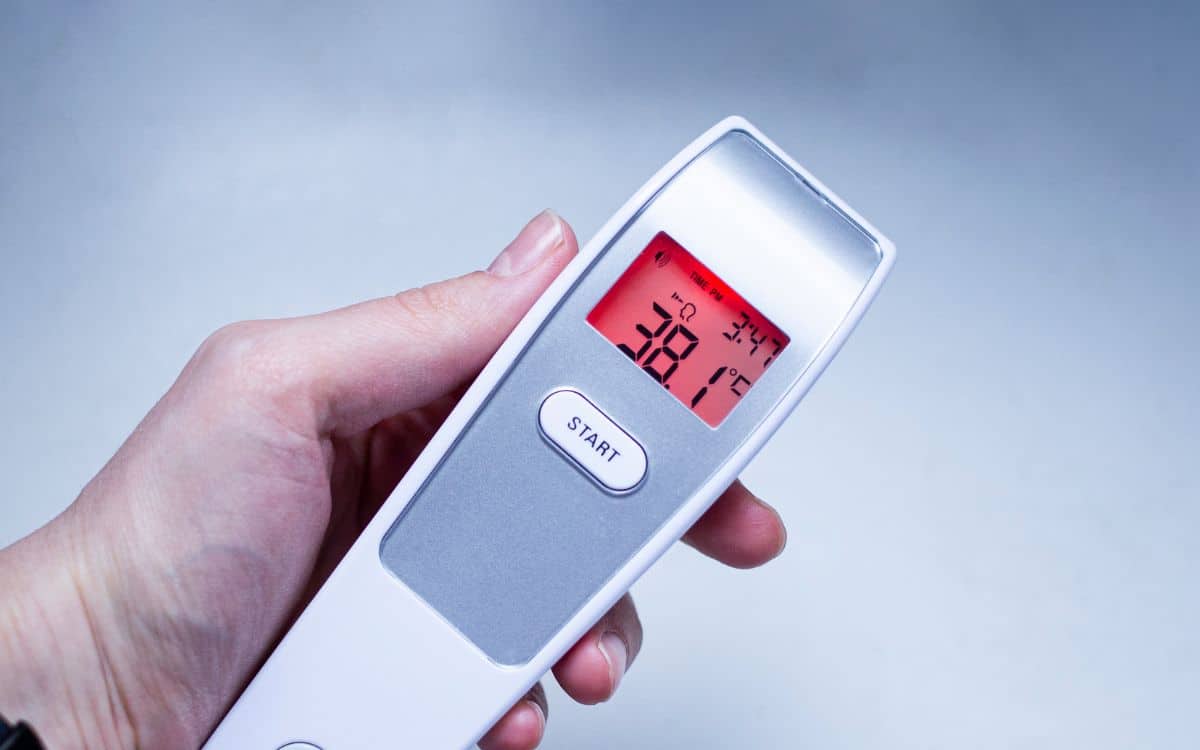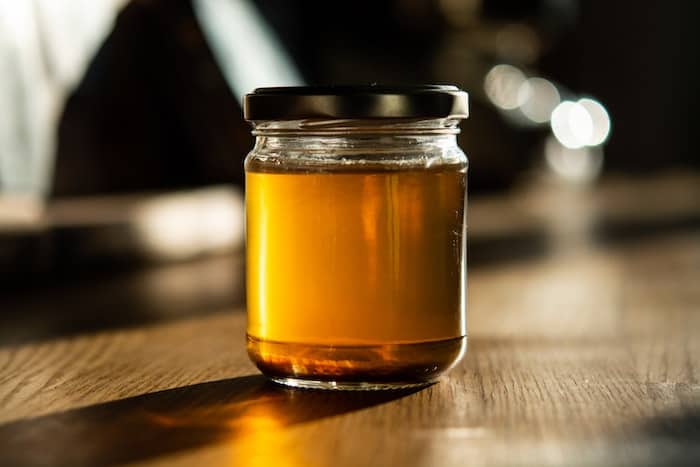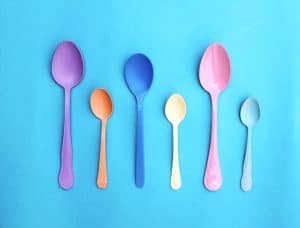Adding honey to warm water is a drink that works like magic for some people. From weight loss to shiny and smooth skin to a stronger immune system, honey water offers a long list of perks that can benefit your health in the long run.

Having said all this, many people cannot help but wonder if honey can also affect the temperature of their bodies.
So, does honey increase body temperature?
Honey has been shown to increase body temperature in a number of studies. The mechanism by which honey increases body temperature is not completely understood, but it is believed to be due to the combination of sugars and amino acids in honey.
When honey is consumed, the body breaks down the sugars and amino acids and uses them for energy. This process of breaking down and using honey for energy increases the body’s metabolism and causes the body to produce more heat.
Continue reading below to learn more about honey and what it can do for your body.
Benefits of Drinking Warm Water with Honey
Honey offers several health benefits. Honeybees naturally produce this thick and sweet elixir. It is frequently used as an alternative to sugar and also provides several therapeutic uses for your skin such as helping with the treatment of burns and wounds.
Drinking warm water with honey has many benefits as well. But it is important to remember that you can get the most therapeutic potential only if you use only the purest and most unfiltered form of honey.
Take a look at the benefits you can enjoy if you start drinking warm water with honey.
It is Antimicrobial
Honey has antibacterial properties that can keep your body protected from infectious diseases.
It Promotes Digestion
Honey in warm water also shows a positive effect on gut bacteria and also helps ensure that your digestive system stays balanced and healthy. Honey is also found to inhibit the dangerous and genotoxic effects of mycotoxins if you use it as a replacement for processed sugar.
It Helps Get Rid of Cough
Honey can also help reduce the severity and frequency of cough in kids. You can give it in a dose of 2.5ml to kids who are one year old and above. But you should never give it to a child younger than a year old because of the danger of botulism.

It Improves Sleep Quality
Honey can also help kids sleep better, especially those who suffer from upper respiratory infections such as cough.
It Provides Hangover Relief
Scientific studies reveal that honey can lower blood alcohol concentration in an intoxicated mouse. To get the best results, you can combine yogurt and a half cup of orange juice with honey.
It Aids with Weight Loss
You can also substitute sugar with honey to help promote weight loss.
However, take note that many of these studies have been conducted on animals. Although all of these are popular and common claims, there is no way to tell if these are true and you cannot rely on them completely.
Thus, further studies on humans are required to back up these claims. Some people also need to limit their consumption of honey because of its potential side effects.
Other anecdotal claims about the benefits of honey without scientific evidence to support them include the following:
- Honey can help improve honey with topical application.
- Honey can flush out toxins.
- Honey can exhibit potent healing properties if applied topically. It can speed up the healing of burns and wounds on the skin. These are mostly because of the anti-inflammatory, antioxidant, and antimicrobial properties of honey.
- Honey can help with the treatment of diabetic foot ulcers. These diabetic foot ulcers are open sores that are among the usual complications that show up as a result of diabetes. Honey is found to help heal these ulcers.
- Honey can improve cognitive function.
- Honey can melt fat.

Are There Side Effects to Drinking Warm Water with Honey?
Honey is a type of natural ingredient that is considered totally safe to be consumed almost all the time. However, while it is found to be a better substitute for processed sugar, it is still important to only consume honey in moderation if your skin is prone to acne or if you are diagnosed with diabetes.
You can also give honey to children because consuming it has been found to help lessen the severity of symptoms in kids with cough and upper respiratory infections. But kids under a year old must never consume honey because it can increase the hazard of botulism. Botulism is a rare type of poisoning and a bacteria known as Clostridium botulinum (C. botulinum) triggers it.
Can You Drink Warm Water with Honey at Night Before You Sleep?
Warm water with honey can be taken at any time during the day and you can also enjoy it at night to get better-quality sleep. It is especially the case for adults and children who have nocturnal flu or cold. Although it is somewhat safe to give honey to your kids, make sure you always consider their age to prevent any unwanted complications.
Can You Drink Cold Water with Honey?
While it is often recommended that you add honey to warm water to promote digestion, you can also choose to take it with just cold water. Plain water or fruit juice mixed with honey is found to be a healthier substitute for other beverages loaded with artificial sweeteners.
But it is not recommended to boil honey or take it with piping hot water. Ingesting heated honey might have some harmful effects on your health because of the accumulation of toxic compounds throughout the heating process.
The best way to consume honey is to mix one to two teaspoons of honey with a glass of warm water. You can drink it every morning to give your digestion a good head start. You can also add honey to a glass of water and refrigerate it so you can enjoy it later after spending a tiring and long day at work.
The Bottom Line
Yes, it seems that honey can increase body temperature as it is a fluid that is warm in nature. You can drink it with either warm water or cold water to maximize its potential health benefits.








